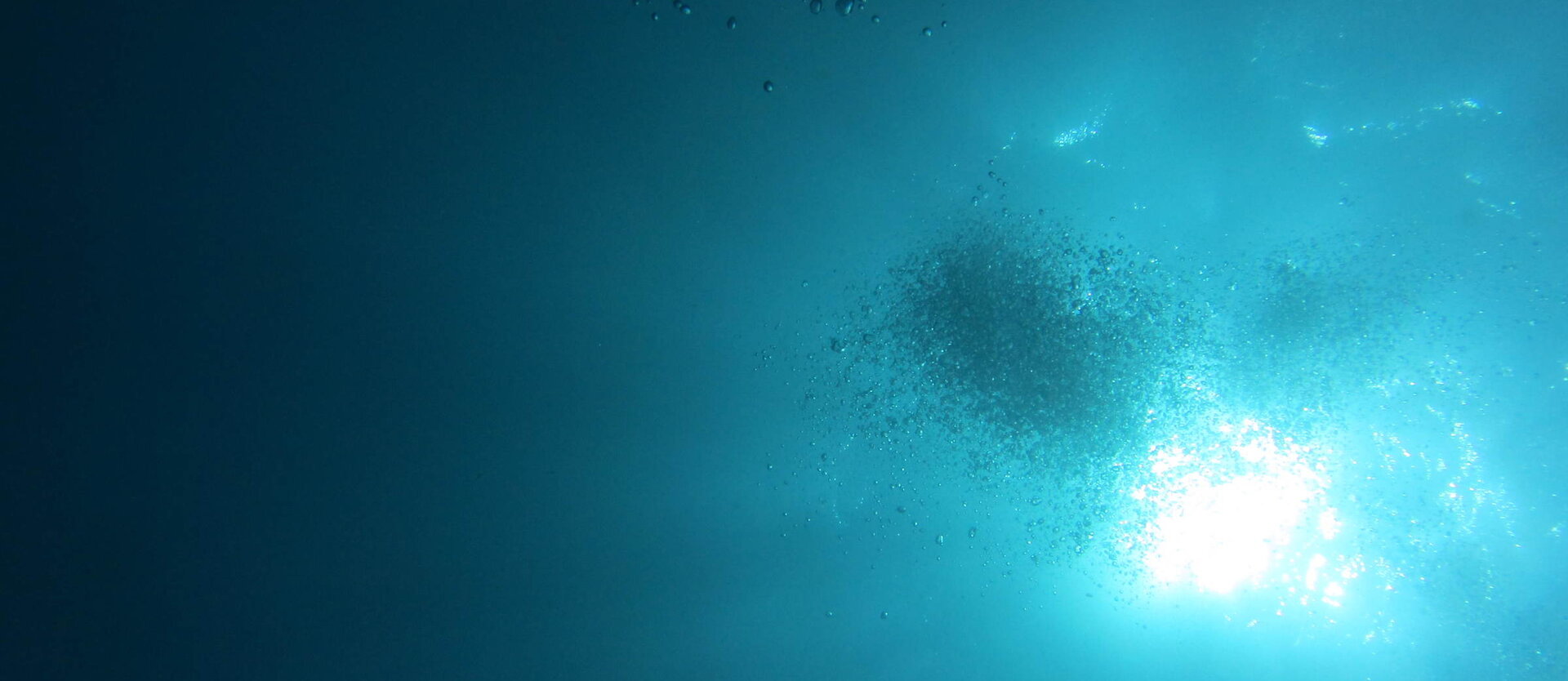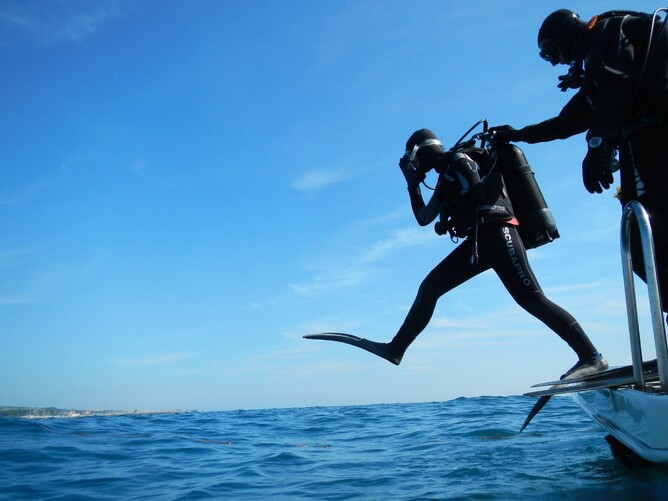Own your dive
If you follow any of the various scuba diving forums that litter the internet then you will often see discussions regarding the role of a dive guide and how much responsibility that individual has on any given scuba dive.
In some areas of the world, a dive guide may be mandatory. For example, in Malta and Gozo you must be certified to dive to 30m (Advanced Open Water | Sport Diver | Deep Diver) or be accompanied by an instructor. The legal liability of a dive guide also differs depending on the jurisdiction.
However, regardless of the legal requirements or liabilities - you are responsible for your own dive. Not the dive guide.
You are responsible for deciding if you dive; the guide's briefing and presence should be informative, not decisive.
Typically, a dive guide's responsibilities will be:
- To assess potential and known hazards at a dive site and inform divers;
- Brief divers on the layout of the dive site and suggest potential routes and entry/exit points and procedures;
- Detail likely marine life and any points of interest;
- Check divers in and out of the water;
- Lead a group of divers in the water as a tour guide
A dive guide is not responsible for:
- Keeping scuba divers safe;
- Making sure they are diving within their limits;
- Keeping divers hydrated;
- Ensuring divers are happy to dive;
- Checking divers' equipment;
- Hand holding around the site.
A dive guide isn't responsible for you getting into or out of the water either!
Student or Certified?
A dive centre owner was recently asking for some guidance; short version is:
Customers had hired scuba equipment and removed/jettonsed it when things got a bit rough on a dive. They were now refusing to pay for the lost equipment on the grounds that the dive guide (instructor from the dive centre) led the dive and it was his ‘negligence’ that had resulted in their difficulties.
Not going to get into the specifics of the dive incident but more the principle of who is “responsible” for your scuba dive.
Quick note: These were certified scuba divers; they were not on a course.
So let’s deal with that first:
When you are on a course then your instructor is responsible for your safety. Even if you are a certified scuba diver, participating in a course means you are a student diver and your instructor has a significant duty of care to you.
In other words, unless you do something monumentally stupid, it is probably going to be down to the instructor if something goes wrong.
It is your instructors responsibility to select an appropriate dive site and to keep you safe.
However, as a certified scuba diver who is not engaged in a course you cannot and must not abdicate responsibility for your dive to anyone else - including a dive guide, even if that guide is a Dive Master or Instructor.
You own your dive - no-one else - You must own your dive.
The phrase ‘plan the dive and dive the plan’ is used often by divers during their training and it is not just a catch phrase. You are responsible for your dive and you alone.
Before you roll up at any dive site you should have a pretty good idea of what to expect. Basic aspects of the scuba dive(s) you are about to participate in should be well understood:
- What is the water temperature?
- What is the likely visibility?
- What are surface conditions like?
- How strong/likely is current?
- What exposure protection do I need?
- What is the maximum depth at the site?
- Is it a shore dive or a boat dive?
- How long is the journey?
How much should I rely on the dive guide?
No more than you rely on your buddy.
You make the decision whether or not to dive, no one else. You have to assess if you are comfortable with the entry and exit, the conditions, the suggested depth, the dive time and if you have the appropriate certification, experience and equipment to enjoy the dive.
Absolutely no one else.
Remember that there is a difference between being certified and being qualified. If you are certified to dive wrecks but have only ever done so in warm, clear, tropical waters - you are not qualified to dive wrecks in the English Channel, regardless of your certification!
But the guide knows best!
Absolutely. They will have far better local knowledge than you and that knowledge should be sought and listened to. Again, however, you cannot simply abdicate responsibility for your dive.
The guide may know the local area and conditions far better than you, but they won’t know you as a diver. Think about it as the dive guide telling you about the dive site so that you can decide if it is right for you.
You make the decision to dive.
Before travelling to a dive location you should have done your research as we mentioned earlier.
Beyond allowing you to arrive at the site comfortable and confident of what you expect and ensuring you have all the correct equipment. It also allows you to validate the briefing that you receive and ask sensible questions during the briefing if your understanding doesn’t match what you are being told.
You can then make an informed decision as to whether this is a dive for you, i.e. if this is one you can approach confidently, look forward to and really enjoy.
So I'm on my own?
No, not at all. A dive guide will do everything that they can to make your dive as wonderful and as much fun as they can, and if you encounter a problem then they will go out of their way to try and help (as will most dive buddies).
They want you scuba diving and they want you coming back for more!
But you cannot and must not expect them to govern your dive. As mentioned, they know the dive site, not you as a scuba diver.
We asked Phil for his thoughts, he said:
“It always surprises me how much reliance some divers place on me as an instructor even though I’m only there to lead the dive. I used to lead dives before I was a DiveMaster, not as an official dive but just because I knew where I was going.
“As a DiveMaster or Instructor I think I have actively intervened on maybe three occasions under the water when someone was not comfortable. By contrast, my stepdaughter, who is not yet a DiveMaster, has intervened twice to assist her buddy, once at 22m to exchange masks - that is the type of diver I want to ‘lead’”.





